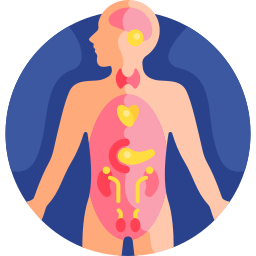Autonomic Specificity Hypothesis
GLOSSARY
The hypothesis that emotion-specific physiological responses can be viewed as a particular case of the general psychophysiological principle of stimulus-response specificity. This principle holds that specific stimulus contexts tend to produce discrete, identifiable, and reproducible somatic response patterns. This notion must accommodate the possibility of individual variability in these patterns, consistent with William James’ acknowledgment of emotional differences among individuals. Put another way, emotions are hypothesized to trigger distinct physiological/bodily reactions. Some of these physiological/bodily activations are argued to be unique signatures of the emotion activating them.


Reference:
Friedman, B. H. (2010). Feelings and the body: the Jamesian perspective on autonomic specificity of emotion. Biological psychology, 84(3), 383-393. doi: 10.1016/j.biopsycho.2009.10.006.
